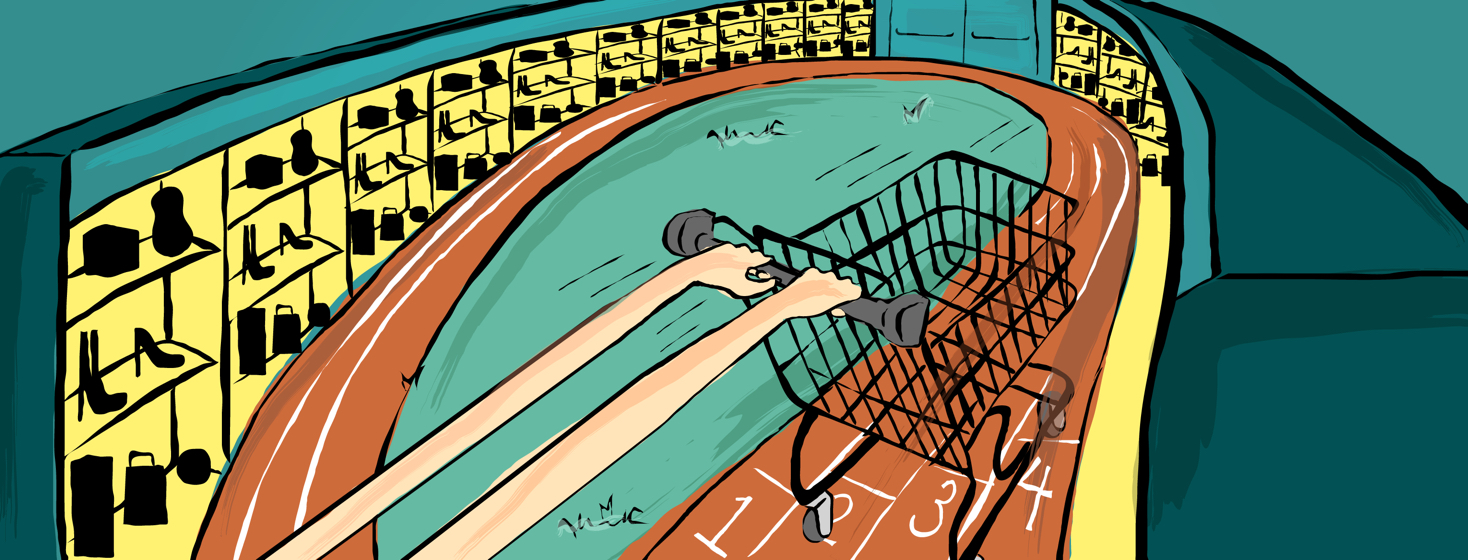How To Win at Black Friday When You Are Chronically Ill
Black Friday. When we hear these words, most of us think of frenzied crowds charging through Walmart doors, exhausted sales associates and harangued store managers, and people filling their carts with new laptops or massive TVs. There are many reasons not to shop on Black Friday. You might not want to participate in a culture that glorifies consumerism. You might be understandably concerned about the effects of mass production on the environment. You might not be able to afford anything new, or you might be trying to save money.
On the other hand, many people with chronic illnesses are limited financially in ways that healthy people aren't. Medications, doctors visits, and hospital stays cost chronically ill people an enormous amount of money each year. Many people with chronic illnesses are also unable to work full time, which means we have less disposable income. There's definitely no shame in snagging some deals instead of paying full price.
However, participating in the biggest shopping day of the year while chronically ill can be physically difficult or even dangerous. When you have stiff joints and aren't able to move quickly, you definitely don't want to be caught in a rush of crazed shoppers. Large crowds also mean increased exposure to germs – a risk many of us with compromised immune systems can't take. Fortunately, there are ways to participate in Black Friday sales and score some savings safely. Here are some ways I save money on Black Friday each year:
I prepare ahead of time
A little bit of preparation can save you a lot of money. In the week leading up to Black Friday, I check the ads at my favorite stores to see what will be on sale and how much off. If I decide the discount is deep enough, I'll add the item to a list. This way, I can calculate exactly how much I'm saving in advance. This saves me from making in-the-moment decisions that might not save me money or that might cause me to buy an item I don't really need.
I visit stores in advance
Did you know that many stores will let you set aside an item and then purchase it a day later? After making my list of items on sale and that I want to purchase, I visit the store on the day before Thanksgiving. I ask to set aside the items I want. Then, I return to the store on the evening of Black Friday, after the shopping rush has slowed down – ensuring I get my discounts without having to stand in line or wake up early.
I don’t fall for fake discounts
There are many great deals to be taken advantage of on Black Friday. However, stores can often take advantage of you by making you believe you're getting a discount when you really are not. Some common tactics retailers use to trick consumers include slapping the words "Black Friday" onto an item that has already been on sale for weeks or raising the pre-sale price of a product to make the discount seem steeper than it is. Some retailers even place Black Friday signs in their stores without offering any significant discounts, instead of counting on consumers' rush to buy. Knowing the original price of items I want to purchase helps me find the real sales.
I skip the morning rush
While the rest of the world is waiting in a line around the block for Walmart or the mall to open, I'm sleeping in. The morning rush is the most dangerous part of Black Friday, and there is no way I'm participating in that craziness. I will shop later in the day, buying items I've set aside, or I'll shop at home online in my PJs.
I stick to my list to prevent impulse purchases
To avoid getting caught up in a rush to get the best deals (many of which aren't even real deals), I stick to the list I made in advance. This way, I know I'm getting the best deals and not buying anything I don't need.

Join the conversation